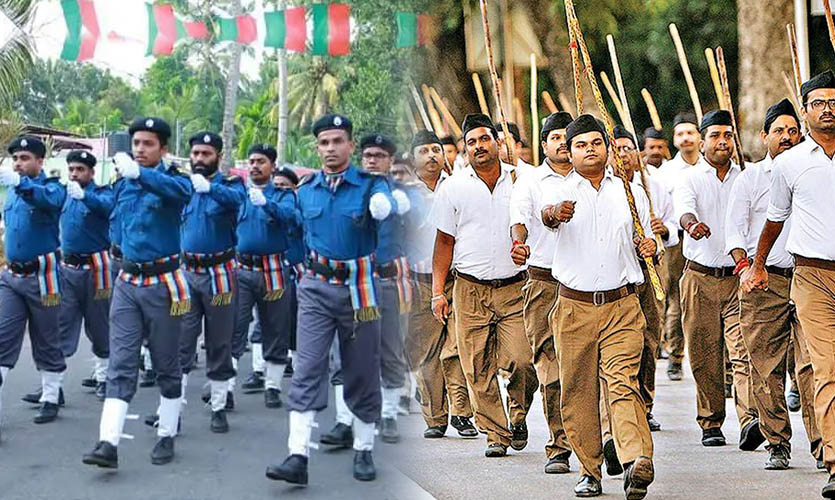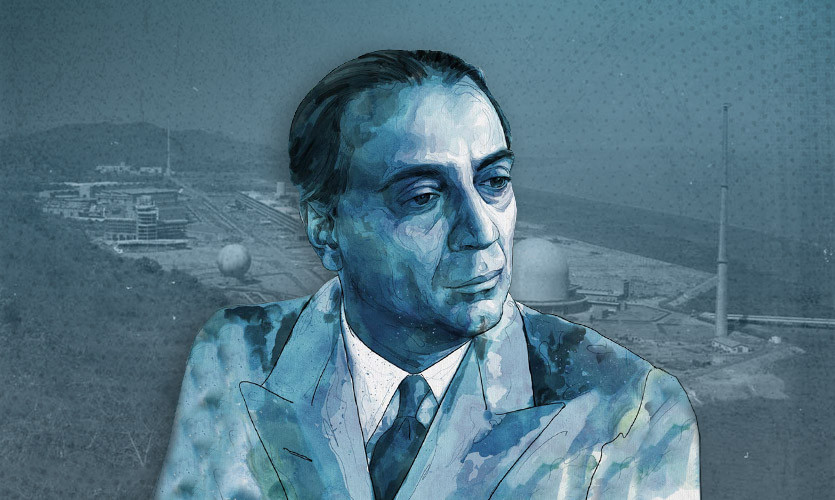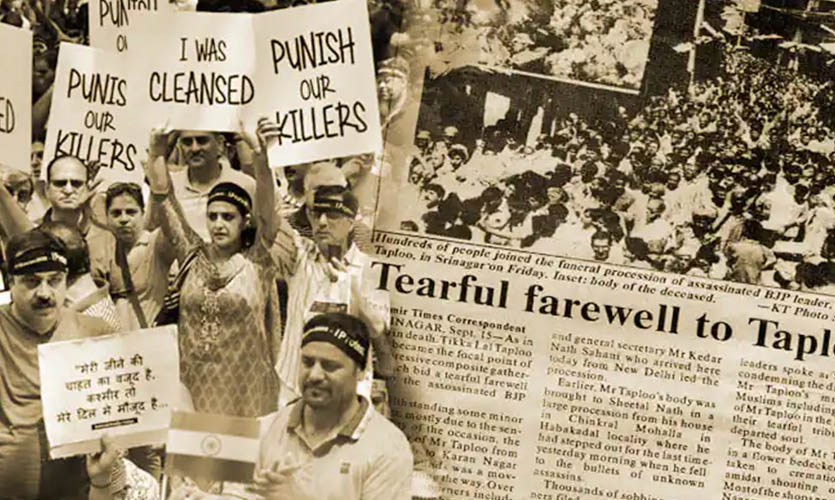The five-year ban on the Popular Front of India has been a long time coming, and thankfully, it is not too little too late.
After its mission to establish an “Islamic government” in India by the year 2047 was unearthed by police forces earlier this year, the ban became imperative.
While this move has largely been lauded, it has prompted the Rana Ayyubs and Lalu Yadavs of India to call for a ban on the Rashtriya Swayamsevak Sangh (RSS) as well.
Can there really be a comparison between the two organisations?
‘India 2047’
“We dream of 2047, where political power has returned to the Muslim community from whom it was unjustly taken away by the British Raj,” read the document titled ‘India 2047- Towards rule of Islam in India’. Earlier this year, in July, Bihar Police had arrested three people, supposed PFI members (the organisation denied any connection), for indulging in ‘anti-India activities’. The ‘India 2047’ document was unearthed during the arrest in Patna. According to police officials investigating the case, the eight-page charter revealed a step-by-step plan to establish an “Islamic government” in India by the year 2047, during which India will celebrate the 100th anniversary of her independence. Reportedly, retired Jharkhand Police officer Mohd Jallauddin and Athar Parvez – two of the people arrested by Bihar Police – were connected to the PFI and its political wing, the Social Democratic Party of India (SDPI). As per information shared by investigating officers at the time, Parvez used to be a part of the Students’ Islamic Movement of India, before it was banned. The document read, “Popular Front of India (PFI) is confident that even if 10% of total Muslim population rally behind it, PFI would subjugate the coward majority community to their knees and bring back the glory of Islam in India.”
“All our frontal organisations including the party should be focused on expanding and recruiting new members. We would begin to recruit and train members into our PE department wherein they should be given training on attacking and defensive techniques, use of swords, rods, and other weapons,” it read further. The document stated that those against their interest will be “eliminated”, and that the PE cadres would act as a “safeguard” against the influence of the security forces of their opponents. It also mentioned how they might need help from “friendly Islamic nations” in the case of a “full-fledged showdown” with the State. “In the last few years, PFI has developed a friendly relationship with Turkey, a flagbearer of Islam. Efforts are on to cultivate reliable friendship in some other Islamic countries,” read the document.
“In the name of martial arts, locals were taught to use swords and knives. They instigated others toward religious violence. We have CCTV footage as well as witness accounts. Parvez also raised funds in lakhs, ED is being involved for the same,” Phulwari Sharif Assistant Superintendent of Police Manish Kumar had said at the time. “No doubt, SDPI and PFI are extremist organisations indulging in serious acts of violence. All the same, those are not banned organisations,” said Kerala High Court Justice K Haripal, while hearing a plea regarding a CBI probe into the murder of RSS worker S Sanjith.
The PFI ban, earlier this week, came after two rounds of multi-agency raids conducted by the National Investigation Agency (NIA), the Enforcement Directorate, and state police across at least 15 states. The ban also covers the functioning of the All India Imams Council, Campus Front of India (CFI), Rehab India Foundation, National Confederation of Human Rights Organisation, National Women’s Front, Junior Front, Empower India Foundation, and Rehab Foundation, Kerala, under the Unlawful Activities (Prevention) Act (UAPA), 2019. “Criminal violent acts carried out by PFI include chopping off a limb of a college professor, cold-blooded killings of persons associated with organisations espousing other faiths, obtaining explosives to target prominent people and places and destruction of public property,” said the Home Ministry. While several individuals have been arrested on a case-by-case basis ever since the ‘India 2047’ document was discovered, at least 250 people associated with the PFI were arrested in the recent raids. A copy of the document was also found in possession of PFI Maharashtra vice-president, while PE training material was found at the organisation’s state president Irfan Milli’s residence. Pen drives containing videos related to ISIS, ‘Ghazwa-e-Hind’, the 1993 Bombay riots and the Kashmiri Mujahid have been found from the Uttar Pradesh PFI leadership, and GPS enabled wireless communication devices and marine radio sets have been recovered from PFI leaders of Karnataka and Tamil Nadu. The organisation has also been accused of terror funding, with the Home Ministry claiming that PFI office-bearers and cadres were ‘scheming and soliciting cash from within and beyond India via banking channels, hawala, and contributions’.
Agencies massively cracked down on PFI workers across states, with Kerala recording 1287 arrests, including that of organisation chief OMA Salam. While the PFI has been disbanded following the Centre’s ban, its political arm – the SDPI – continues to function, but under close scrutiny. “All PFI members and (the) public are informed that the Popular Front of India (PFI) has been dissolved. MHA has issued a notification banning PFI. As law-abiding citizens of our great country, the organisation accepts the decision,” said PFI Kerala general secretary Abdul Sattar. However, as per some reports, social media pages related to the CFI and PFI remain active under pseudonyms such as “Intifada”, a term used by Palestinian extremists against Israel. As of Friday evening, PFI Kerala remained active on Twitter and Telegram, while PFI Assam continued on Facebook and Telegram.
Conflicting Reactions
All India Majlis-e-Ittehadul Muslimeen (AIMIM) chief Asaduddin Owaisi has spoken out against the ban, saying that the actions of some individuals should not lead to a ban on the entire organisation. He commented, “A draconian ban of this kind is dangerous as it is a ban on any Muslim who wishes to speak his mind. The way India’s electoral autarky is approaching fascism, every Muslim youth will now be arrested with a PFI pamphlet under India’s black law, UAPA.” Owaisi further questioned, “Why has the government not banned right wing majoritarian organisations?” The Hyderabad MP, however, failed to mention the PFI-attested incriminating evidence found in the possession of these individuals.
Meanwhile, news analyst and activist Anshul Saxena has shared a series of interesting reactions from Muslim organisations, to the ban on PFI and its associates. All India Sufi Sajjadanashin Council chairman Hazrat Syed Naseruddin Chishty said, “On behalf of the organisation, I welcome this decision by the Centre… we had demanded the Indian government for a ban on the PFI at the earliest if there is sufficient evidence. It is a lesson for people who are engaged in anti-India activities.” He added that the decision was much needed in the interest of India’s national security, and should be taken positively by all Muslims.
Tanzeem Ulama-e-Islam chairman Mohd Ashfaq Ul Qadri welcomed the decision as well, saying that the organisation had also demanded a ban on the PFI during the previous government, in 2018, when Rajnath Singh was the home minister. “We were among the first to demand a ban on the PFI… It radicalises the Muslim youth, and like the government has said, is engaged in illegal activities.”
Kul Hind Markazi Imam Council and Sufi Islamic Board have both welcomed the decision and said that strict action should be taken against organisations like SIMI and PFI that want to harm India. Representative of the Sufi Islamic Board also said that the funding angle should be investigated in the case of the PFI to know who exactly is providing them with so much money to carry out anti-India activities.
On September 28, the All India Pasmanda Muslim Mahaz issued a press release in Hindi, welcoming the ban on the PFI. Sufi Khanqah Association chairman Pir Sufi Syed Khalid Naqvi Al Hussaini, “I request all Muslim brothers and organisations in the country to not speak or demonstrate in favour of the PFI since it was engaged in anti-India activities, and supporting it would not be in the nation’s interest. We should be happy that a terror-spreading organisation has been banned.”
On the other hand, Bahujan Samaj Party chief Mayawati reacted: “The BJP has indulged in narrow politics under the garb of Muslim appeasement to come to power. Now, after coming to power, Muslim harassment is continuing. Muslims are being suppressed and intimidated.” Engaging in ‘what-aboutery’, she added, “It is a move towards appeasement of (the) sangh. This has led to more unrest among people rather than creating peace… There is a need that he (Bhagwat) also looks into the inferences that are being drawn out of his silence on issues like (the) UP government’s interference in private madrassas and its intolerance towards offering of ‘namaz’ at open spaces even for a few minutes.”
On September 24, so-called journalist Rana Ayyub, while sharing a screenshot of a news report headlined: ‘PFI conspired to establish Islamic rule: Remand reports of NIA and ED’; tweeted, “While Right wing bigots in presence of cops and cameras take oath in the National capital to convert India into a Hindu rashtra.” Additionally, Ayyub proceeded to become party to spreading unverified news on September 29, by sharing a report by the Jamia Times, which claimed that Jharkhand resident Maulana Ataullah Qasmi was killed and his body burnt and disposed of by a Bajrang Dal worker. However, preliminary reports have confirmed that no link to the Bajrang Dal has been established yet. The accused, Shivshankar Yadav, has told the police that Maulana Qasmi had sexually harassed his wife on the pretense of performing an exorcism, following which he killed him.
The RSS Angle
Citing the “secular” fabric of the Indian constitution, stitched in only in 1976, Ayyub and politicians like Owaisi and Fodder Scam convict Lalu Prasad Yadav have called on agencies to turn its investigations towards the RSS. While the politicians have called for an outright ban on the organisation, Ayyub has simply continued with her fool-proof practice of playing the victim card on her own behalf and unfortunately, on that of the entire Muslim community. Several activists and commentators have pointed out that a ban on an extremist Muslim organisation should facilitate a ban on an extremist Hindu organisation to maintain India’s secularism and avoid religious bias. The three previous bans on the RSS have also been brought up.
The Hindu’s editorial on the Centre’s “sledgehammer approach” over the PFI ban, reads, “The PFI is the Islamic variant of communal politics and the mirror image of the majoritarian current gripping several parts of India.” It continues:
“Deradicalisation is not just a task left to law enforcement agencies; it should be the consequence of reorienting governance to live up to the secular values propounded by the Constitution — something that has taken a beating in recent years. Meanwhile, the organisation (PFI) has responded to the ban by announcing that it stands disbanded following the notification. The ban must not be utilised as a means to target Muslims, specifically political dissidents and democratic activists who have engaged in legitimate protests against discriminatory pieces of legislation such as the Citizenship (Amendment) Act.”
Noteworthy, the RSS has been banned thrice before: in February 1948, by Home Minister Sardar Patel, after former RSS worker Nathuram Godse assassinated MK Gandhi; in July 1975, by Prime Minister Indira Gandhi, during Emergency; and in December 1992, after the demolition of the Babri Masjid in Ayodhya.
In the first instance, the RSS officially condemned the killing of Gandhi. “It has been found that in several parts of the country individual members of the Rashtriya Swayamsevak Sangh have indulged in acts of violence involving arson, robbery, dacoity, and murder and have collected illicit arms and ammunitions. They have been found circulating leaflets exhorting people to resort to terrorist methods, to collect firearms, to create disaffection against the government and and suborn the police and military,” the government had said in a statement, declaring the organisation as “unlawful”. The ban was lifted on July 11, 1949, after several appeals by the RSS. Lifting the ban, the Centre said, “The RSS leader (Sarsanghchalak MS Golwalkar) has undertaken to make the loyalty to the Union Constitution and respect for the National Flag more explicit in the Constitution of the RSS and to provide clearly that persons believing or resorting to violent and secret methods will have no place in the Sangh. The RSS leader has also clarified that the Constitution will be worked on a democratic basis.” The Sangh website explicitly mentions that the organisation’s constitution was established in 1949.
In 1975, Ms Gandhi banned the RSS for being “fanatically” Hindu, after accusing Janata Dal founder Jayaprakash Narayan of aligning with the Sangh, among other things. There was no specific reasoning cited for instituting the ban, which was lifted when the Emergency ended on March 22, 1977. The ban put on the RSS in December 1992 was lifted within six months, after the Justice Bahri Commission found it “unjustified”. At the time, BJP leader Ravi Shankar Prasad wrote:
“There was no material evidence to show that these associations (RSS) had pre-planned the destruction of the disputed structure. The report also notes the white paper prepared by the Central government,which does not support the pre-planning theory. The tribunal accordingly held that there is no sufficient ground to declare the RSS unlawful.”
Same Spectrum or Forceful Comparison?
Speaking to The Sparrow, a source* close to the RSS says, “RSS (members) are extremists when it comes to defending their own, and PFI is an extremist when people don’t abide by or pamper their beliefs.”
“How can the two be compared? RSS champions Hindutva, which is a lifestyle… it can’t be imposed, only embraced,” he highlights.
He elaborates: “Communists want everyone to be communists. Muslims want everyone to be Muslims. Christians want everyone to be Christians. RSS wants Indians who live in India to be loyal to India and not to a political party with agendas.
People like to talk about RSS involvement in Gujarat riots. What happened post the train burning episode was people taking up arms to protect their own and what was theirs, because the system that should have prevented the train burning at Godhra had failed them. In 1947 India, the extremists of one side split the country into two, and the so-called RSS extremists had the women of their Sanghis work day and night to cook ration for the people migrating in Punjab and Assam, as per first-hand accounts.”
He continues, “Savarkar was an atheist who believed in Hindutva. Is there anyone in the Muslim community who can say that he doesn’t believe that Allah exists but is inspired by Islamic lifestyle?”
“Dvait advait vaad is our philosophy… different but same. You can be an atheist and still appreciate the principle on which Diwali is celebrated… Victory of good over evil should be celebrated… Don’t need to be a Hindu to appreciate that.”
When asked about the repeated accusations on the RSS, he says, “Politicians like PV Narsimha Rao, Lal Bahadur Shastri, and Vajpayee ji never feared the RSS… because each one of them had the country’s interest at heart before their own or their respective party’s.
“If the government is efficient enough, the RSS will go back to being a think tank like they were during the tenure of Golwalkar ji. But they won’t sit on the sidelines while you sell the country for personal gains.
“These guys want RSS to act out and be the devil they say they are. But it is too disciplined to initiate violence… It is always as a retaliation from them. What RSS proposes is that the wrongdoers be punished, but they never propose cruelty.”
The source also went on to discuss Sardar Patel’s decision to ban the RSS in 1948 in this context. “He was given the task of unifying india… For him, any entity no matter right or wrong, that would bring disharmony amongst the people, was an added burden to the task of unifying india.”
“Patel was also burdened by his blind loyalties towards the Congress, and Godse was condemned for his actions by the RSS as well. But where are the political statements of parties about systematic bullying by Muslim groups back then? Why was the Sindh and the North West conceded to the Muslim League if the Indian Union won both elections?”
As an organisation, the RSS seems severely regimented. Nevertheless, it does not talk about converting the world and its people to Hindutva and Hindus, unlike the so-called peaceful religions. We cannot generalise the case-by-case motives of an extreme faction, but we can cite history – unadulterated history – and bear them in mind as lessons.
Highlighting the same, the source says, “Communists wiped out the culture of Russia, China, Tibet, North Korea, Cuba. Muslim radicals wiped out the cultures of Syria, Lebanon, Afghanistan, Pakistan, Libya, Egypt. What would they do to the Indian heritage if they are not so fiercely opposed on the grassroots level?”
It’s possible that the extremist tendency of the RSS may be open to debate. Of course, it does nothing to hide its Hindutva DNA. Going by the organisation’s mission outlined by RSS founder Dr Keshav Hedgewar himself, “It is… the duty of every Hindu to do his best to consolidate the Hindu society.” But in all certainty, the RSS is no PFI.
* Source kept anonymous for safety reasons.
The Horus Eye is a weekly column written by Divya Bhan analysing current affairs and policies. This column does not intend or aim to promote any ideology and does not reflect the official position of The Sparrow.










